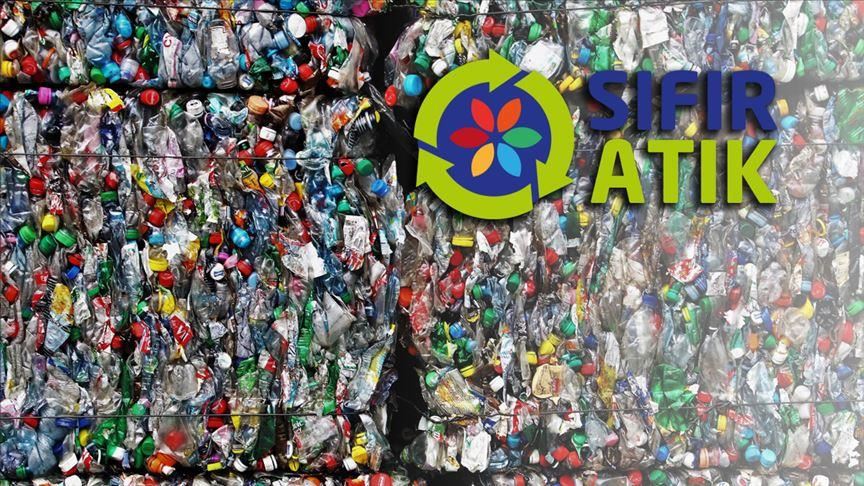
ISTANBUL
The zero waste project, which emerged as a waste management philosophy, envisages the most efficient use of resources by preventing waste or minimizing the amount of waste when it is generated.
If waste generation is unavoidable, it aims to separate the waste at its production point and to recover it as raw material or energy.
Turkey’s zero waste project, led by First Lady Emine Erdogan, aims to reduce the volume of non-recyclable waste. The project is also listed in the Environmental Performance Review of the Organization for Economic Co-operation and Development.
If no waste is produced at the end of a day at home, it is called a “red apple” -- a difficult goal to achieve. However, the effort for this goal will push people to produce as little waste as possible and devise methods to recycle disposable items.
In recent years, schools and municipalities in Turkey have expanded the number of competitions that encourage children to find creative solutions using waste materials.
This will lead the generations that will shape the future to be more prone to recycling than the middle-aged and elderly.
How wide-ranging is the Zero Waste Project?
The recycling rate is 46% in the European Union countries compared with 13% in Turkey. The project aims to increase that ratio to 35% in Turkey by 2023.
As of May 2019, 18,750 public institutions in Turkey had begun to be included in the zero waste project, separating their waste at its source.
In order to achieve success in the zero waste project and increase the waste recycling rate, household wastes should also be separated at their source and collected with this system.
What is the project’s contribution to the economy?
Within the framework of this project, which has been running for 19 months, 126.1 tons of paper and cardboard were recycled, preventing the cutting of 2,142 trees, while 49 tons of plastic waste were recycled, saving 798.7 barrels of petroleum. A total of 25.5 tons of raw materials were saved by recycling 8.7 tons of glass waste and 11.5 tons of metal waste, while 3.7 tons of compost were produced from 9.1 tons of organic waste and used for growing vegetables and fruits.
Moreover, biodiesel was produced by recycling waste vegetable oil, mineral oil was produced by recycling waste motor oil, and raw materials were produced by recycling electronic waste. According to the data available, the return from the first 19 months of the project was 807,341 kilowatt-hours of energy, 3,528 cubic meters of water, 1,490 cubic meters of storage space, and the reduction of greenhouse gas emissions by 25.6 tons.
* Writing by Erdogan Cagatay Zontur
Anadolu Agency website contains only a portion of the news stories offered to subscribers in the AA News Broadcasting System (HAS), and in summarized form. Please contact us for subscription options.









